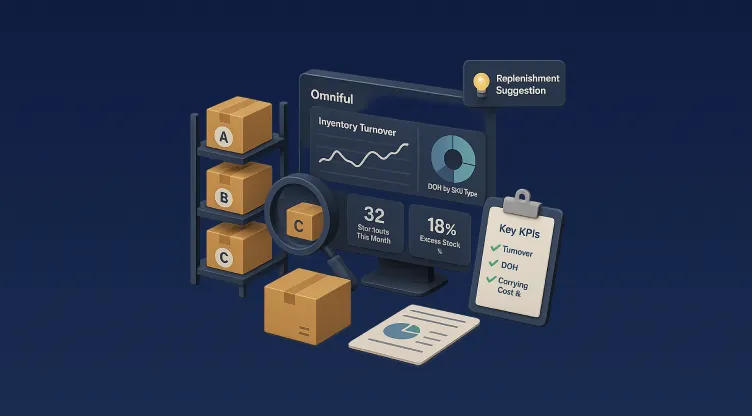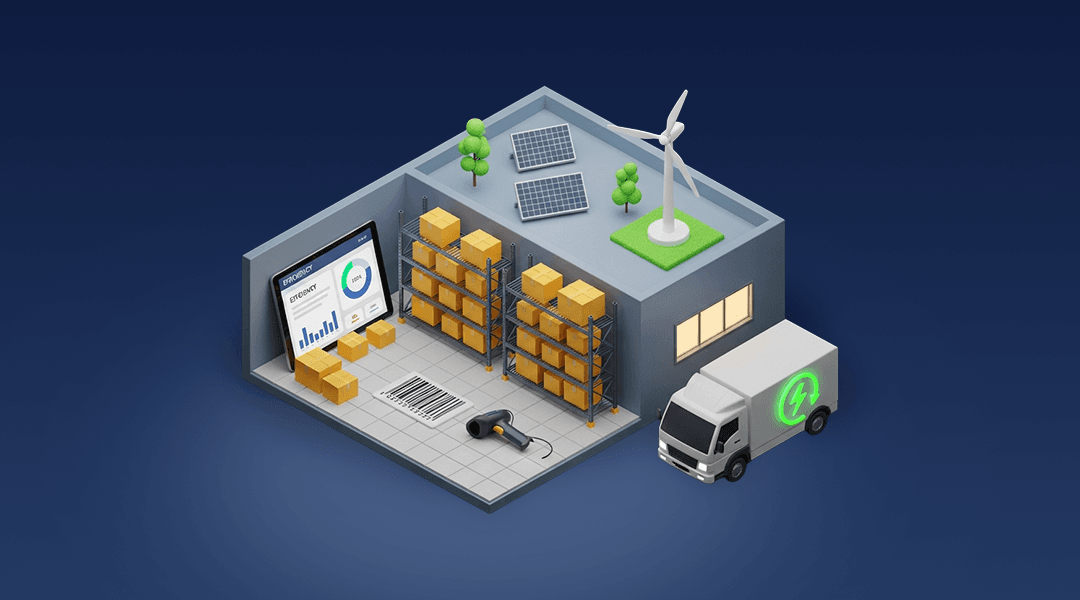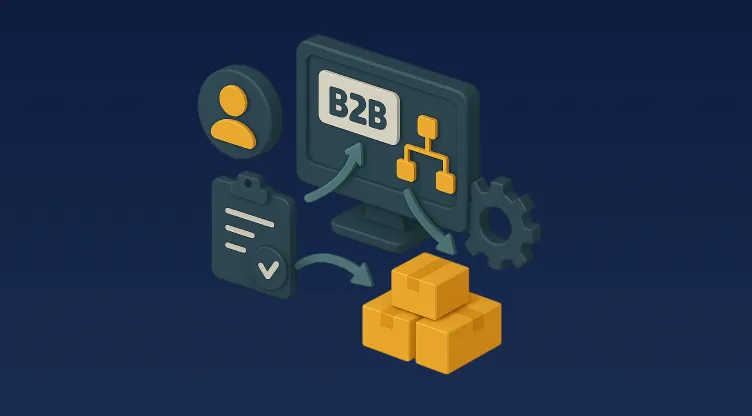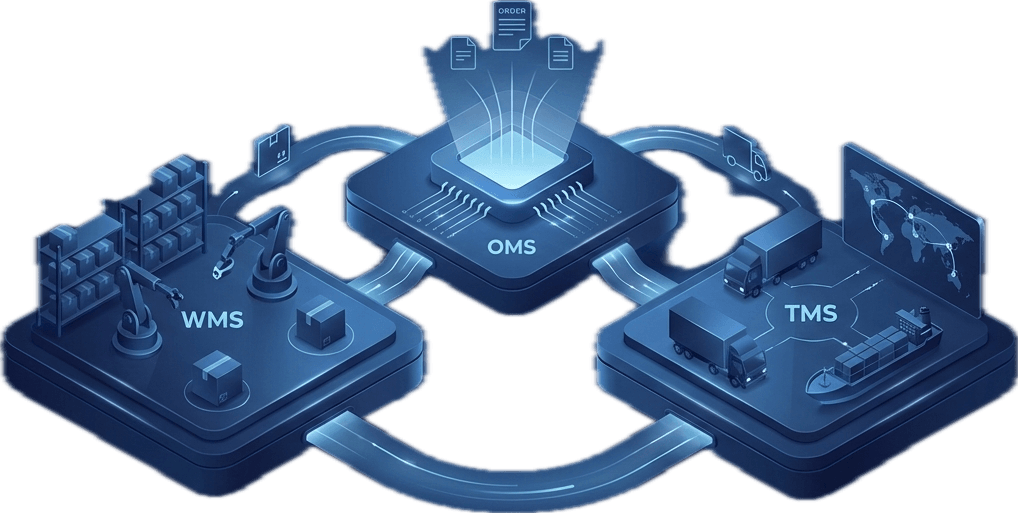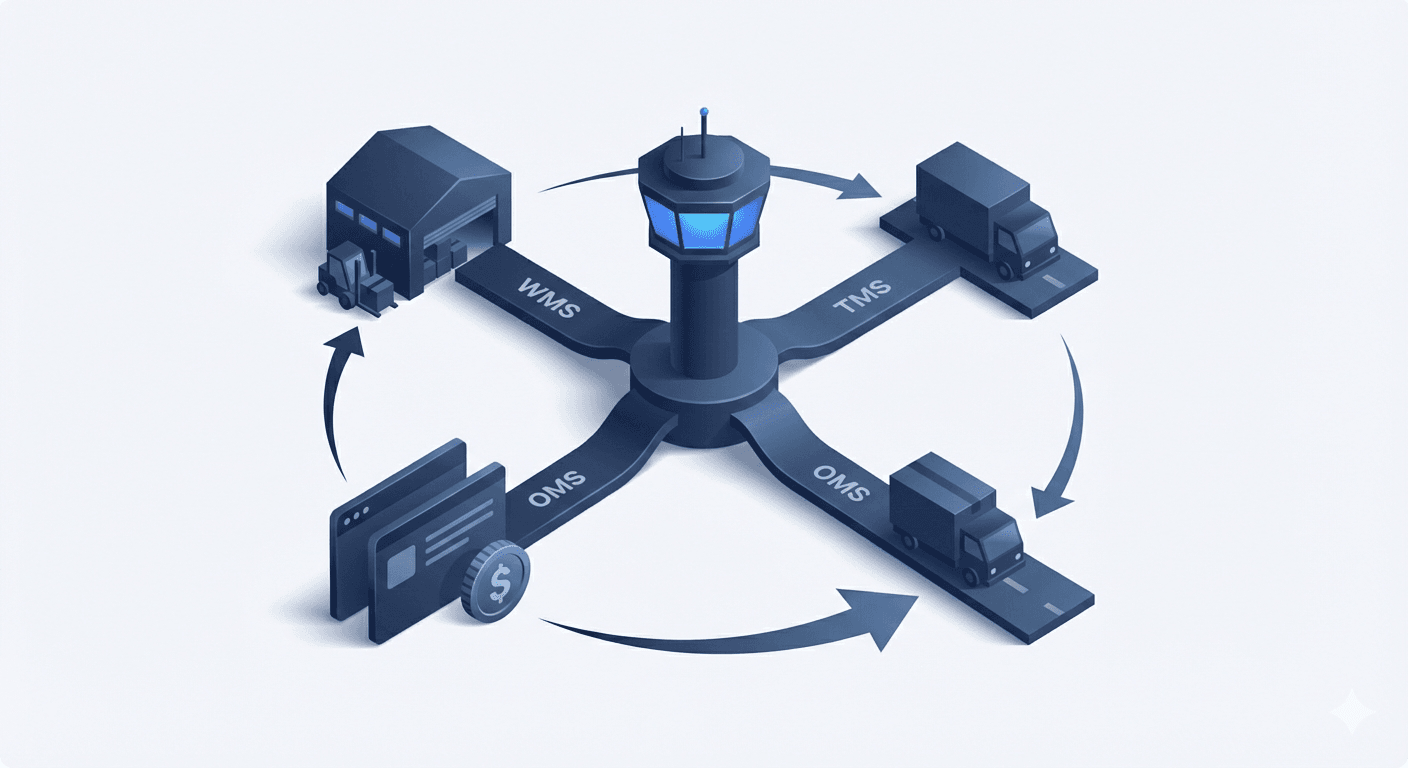Best Warehouse Management Systems for 2025: Top Solutions
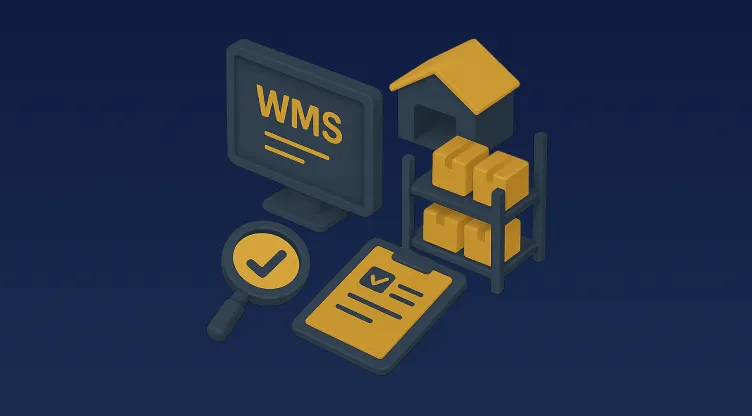
Table of Contents
Smart Insights Warehouse Managers Wish They Knew Sooner
- Gain full control over inbound, outbound, and inventory with a unified WMS dashboard.
- Key features include smart inwarding, multi-method picking, optimized packing, and systematic cycle counts.
- Cut costs, slash errors, and scale effortlessly with cloud-native, multi-hub WMS.
- Omniful WMS helps you fulfill B2B, B2C, and marketplace orders quickly and smoothly—so your customers get what they need, right when they need it.
- Handle returns with ease using smart reverse logistics workflows.
- Track inventory across multiple warehouses, dark stores, and fulfillment centers.
- Maintain accuracy with real-time stock audits and automated cycle counts.
Can the Right WMS Help You Beat Supply Chain Disruptions in 2025?
Did you know that 90% of supply chain leaders reported facing major disruptions in 2024, including geopolitical tensions, natural disasters, and talent shortages? Is your business ready to scale in conditions where the global WMS market is projected to reach USD 5.98 billion by 2030?
It’s clear: companies need to automate their warehouses with an efficient warehouse management system (WMS) to stay competitive. A great WMS will enable operators to ensure that the right products are shipped to the right consumer at the right time. This is essential for customer satisfaction and future growth.
For small e-commerce businesses, especially, these metrics can make or break your success amid ongoing supply chain challenges. But with so many options on the market, choosing the right WMS can be overwhelming.
To help you decide, this article examines the top 10 warehouse management systems (WMS) of 2025. We offer insights into their features, pricing, and benefits to help you choose the best solution for your business. Let's get into it.
What Makes a WMS a Game-Changer in Modern Warehousing?
A warehouse management system is a software tool that helps you track and manage all activities within your warehouse. This includes processes such as inventory tracking and management, receiving and storing items, packing and shipping, and order fulfillment.
Some of the best WMS systems today also offer reporting and analytics to help businesses optimize operations and increase profits.
WMS Benefits You Can’t Ignore:
✅ Real-time inventory control: Track stock levels in real-time to avoid overstocking or stockouts.
✅ Process automation: Automates workflows such as order picking, packing, and shipping to reduce manual labor and errors.
✅ Reduced operational costs: Streamline processes across the warehouse using a WMS to lower labor and overhead costs.
✅ Integration with other systems: Integrate seamlessly with ERP and TMS (Transportation Management System) solutions. This enables your WMS to exchange data with other systems across the supply chain, ensuring smooth execution of the entire order process.
Confused by Too Many WMS Choices? Start with These Top 5
Seeking a reliable WMS to support your business expansion, but unsure where to begin? Check out this list of the best WMS systems that can grow and make your customers happy with their added features.

Who Leads the WMS Market in 2025? Discover the Top 10 Solutions
While there are many solutions touted as the best WMS for e-commerce, the best WMS for small businesses, or simply the best WMS software, it can be challenging to determine which system best suits your business needs. To help you along, here we compile the top 10 best warehouse management systems in the market today:
1. Omniful
Looking for a scalable, reliable WMS system that also seamlessly integrates with other enterprise systems, such as your OMS and TMS, to ensure timely delivery? Look no further. The Omniful WMS stands out as an all-in-one solution tailored for small and medium-sized businesses. It is one of the best WMS systems offering advanced features typically found in larger enterprise systems for smaller players.
Omniful’s WMS platform keeps your inventory up-to-date in real time, helps with batch picking, and automates workflows—making it a perfect fit for e-commerce businesses and retailers selling across multiple channels.
Here’s What Comes with the WMS Package:
-
Orders Piling Fast? Scale Smarter
Are you considering entering new markets with new product lines, but your existing systems are unable to handle the pressure? Consider Omniful, which scales with your business. Its WMS handles more SKUs, warehouses, and orders without zero stress.
-
Wasting Time on Repetitive Tasks? Boost Efficiency
Slow pick-and-pack, delayed shipments, and disconnected systems can eat up your profits. With Omniful, this is no longer the case. Omniful’s WMS streamlines your entire workflow with smart automation, real-time syncing, and super-fast order processing — so you move faster at all times.
-
Tired of System Glitches? Switch to Rock-Solid Reliability
Businesses are often fed up with system failures, downtime, and missing inventory at the cost of their valuable customers. You need something unshakeable like Omniful’s WMS. The platform delivers exceptional performance with apt tracking, stable uptime, and automated alerts that give you a competitive edge.
What’s in It for You?
- Lesser Stockouts & Errors
- Real-Time Inventory Accuracy
- Happy Customers
- Faster Order Fulfillment
- Reduced Costs
- Quick Onboarding
What Omniful Fixes for You?
🗸 The Omniful WMS reduces errors, especially human ones, with automated warehousing processes and workflows.
🗸 Thanks to real-time inventory tracking and cycle counts, the WMS improves inventory accuracy.
🗸 The Omniful WMS also reduces manual labor and helps cut down cost inefficiencies across warehousing operations.
Star Features:
- Advanced Inwarding: The Omniful WMS is one of the top warehouse management systems that streamline workflows for all inward processes, including receiving orders, optimizing gate entries, precise GRN generation, and streamlining putaway processes for unmatched speed and accuracy.
- Smart Picking: The Omniful WMS offers multiple picking methods, including single-order, multi-order, and other advanced options, allowing operations to choose the most efficient approach for each hub. These methods can be applied simultaneously, maximizing resource utilization and accelerating order fulfillment for enhanced operational flexibility.
- Optimized Packing & Handling: The Omniful WMS streamlines all packing processes, including order verification, labeling, quality checks, shipping label generation, and more via PCs and mobile devices, improving order accuracy and speed.
- Cycle Counting: The Omniful WMS also automates inventory auditing processes and enables cycle counts across different warehouse zones to improve inventory accuracy.
Pricing:
Available upon request.
Is your warehouse set to meet 2025 demands? See how Omniful’s WMS can simplify your operations and boost efficiency—start your free trial today!
2. Oracle Fusion Cloud Warehouse Management
Oracle's Fusion Cloud Warehouse Management System provides comprehensive inventory visibility, making it an ideal solution for optimizing operations across retail, e-commerce, distribution, manufacturing, and other industries.
It is an ideal platform for large or growing enterprises with omnichannel needs that require integrating warehouse management with other Oracle systems, such as ERP and TMS. Known for its advanced analytics and scalability, Oracle Fusion Cloud works well for businesses with complex supply chains.
Star Features:
- Integration with the Oracle suite (Oracle ERP or RMS)
- Advanced reporting and analytics
- Real-time inventory management
What’s Great:
✅ Integration capabilities: Oracle Fusion offers a comprehensive tech stack that integrates easily with Oracle ERP, TMS, RMS, and other systems. It can also integrate seamlessly with non-Oracle enterprise solutions.
✅ High Transaction Volumes: This is one of the top WMS systems for managing millions of transactions across large warehouses.
What’s not:
❌ Suitable for Enterprise: Oracle Fusion WMS can pose a challenge for small businesses, as it increases overhead costs.
❌ Expensive Customizations for Compliance: Implementing compliance workflows in this WMS may be costly.
Pricing:
Available upon request.
3. Luminate Logistics by Blueyonder
Luminate Logistics by Blue Yonder is one of the top WMS software solutions recognized for its intelligent warehouse automation capabilities. It uses artificial intelligence (AI) and machine learning (ML) to automate warehouse operations. With intelligent labor management and real-time tracking capabilities, it is designed for businesses aiming to embrace cutting-edge technology in their supply chain.
Star Features:
- AI and ML-driven automation
- Predicts disruptions
- Provides recommendations to mitigate disruptions
- Real-time inventory tracking
- Labor optimization
What’s Great:
✅ Predictive Capabilities: Luminate Logistics WMS utilizes machine learning to anticipate supply chain disruptions and take proactive measures.
✅ Future Ready: This is one of the best WMS software solutions for leveraging robotics and future-ready technology in your warehouses.
✅ Connected to Supplier Networks: The Luminate Logistics platform gives a clear view of supplier networks.
What’s Not:
❌ Long Setup and Learning Curve: This WMS requires a significant amount of time to set up and presents a steep learning curve.
❌ Support: Many users complain of delayed responsiveness and inadequate support from the vendor.
Pricing:
Available upon request.
4. Microsoft Dynamics 365 Supply Chain Management
Microsoft Dynamics 365 SCM (supply chain management) offers deep integration between WMS and ERP functionalities. The highly customizable platform allows businesses to create tailored workflows that suit their unique operational needs. This is a top WMS system that serves the needs of manufacturing, distribution, and retail companies.
Star Features:
- Rules Based Storage
- Customizable Workflows
- Warehouse Layout Design
What’s Great:
✅ Flexibility: The Microsoft Dynamics 365 SCM allows teams to define warehouse layouts for optimizing operations
✅ Storage Prioritization: The WMS enables users to prioritize storage depending on urgency.
✅ Rules-Based Storage & Picking: Users can create rules to store and pick items for speedy operations and fulfillment.
✅ Easy Migration: Migrating from other systems to this WMS solution is easy.
What’s Not:
❌ Expensive: With costs for software licensing, hardware, and cloud storage, this may be a cost-heavy WMS for businesses with smaller budgets.
❌ Lack of Learning Documentation: It can be challenging to get the right guides and documentation to learn the ins and outs of this system.
❌ Higher Training and Implementation: Your team may spend a significant amount of time learning to use this WMS.
Pricing:
Available upon request.
5. SAP Extended Warehouse Management
The SAP Extended Warehouse Management (EWM) is designed for large enterprises and offers a comprehensive solution that integrates seamlessly with SAP ERP. This WMS can handle a high volume of goods, making it ideal for enterprise-level businesses. The platform offers advanced warehousing capabilities, including slotting, kitting, and cross-docking.
Star Features:
- Easy integration with SAP ERP
- Advanced warehousing processes
- Scalability
What’s Great:
✅ Warehouse Automation Control: With SAP EWM, you can directly manage and control your warehouse automation equipment, resulting in smoother operations.
✅ Space Utilization: This WMS uses intelligent slotting rules to maximize space.
✅ Integrated Procedures for Easy Operations: Processes such as quality management, production, and track and trace are all optimized for maximum efficiency.
What’s Not:
❌ Steep Learning Curve: The SAP EWM can be challenging for new users, especially those mid-sized businesses that are leveraging such systems for the first time.
Pricing:
Available upon request.
6. Manhattan Active Warehouse Management
Known for its scalability and flexibility in complex, large-scale environments, the Manhattan Active Warehouse Management solution enables users to control demand, supply, labor, and automation across their entire supply chain. Users can also add their logic, integrations, and customizations, making this one of the best WMS systems for growing businesses.
Star Features:
- Cloud-Native WMS
- User Friendly with personalization for optimization
- Automatic Updates
- Data Security
What’s Great:
✅ Streamlined Order Fulfillment: This WMS provides users with real-time inventory analysis, automated workflows, and seamless integration with warehouse automation, enhancing order fulfillment.
✅ Enhanced Accuracy: Inventory processes can be strengthened, and order cycle times can be reduced with this warehouse management system.
✅ Extensible: Users can add their logic, customizations, and integrations without negatively affecting updates in this WMS.
What’s Not:
❌ Struggle with Integrations: Users have faced trouble with integrations, as they are not API based.
❌ Support: Users also complain of a lack of support regarding this WMS system.
Pricing:
Starts at $2000 per license annually.
7. Locus by Centric WMS
One of the nest WMS systems for medium to large enterprises, this warehouse management system offers robust e-commerce fulfillment features with seamless integration capabilities. Players across retail, wholesale, e-commerce, 3PL, and manufacturing can all use this warehouse management system.
Star Features:
- Configuration Flexibility
- Interactive Dashboards
- Insights & Reporting Into Costs and Usage Metrics
What’s Great:
✅ Optimize Processes: This WMS enables users to gain insight into key metrics across all processes and optimize them accordingly.
✅ Ease of use: The WMS is touted as being simple to use.
What’s Not:
❌ Industry Specific: While Locus is known for its application in food retail, the WMS may need to be customized to serve other industries.
Pricing:
Available on Request.
8. Increff WMS
Increff WMS is one of the best warehouse management systems for the fashion and lifestyle segments. It uses advanced AI and ML algorithms to optimize demand forecasting and inventory allocation. It helps businesses achieve higher fulfillment rates through inventory tracking and order prioritization.
Star Features:
- Multi-Systems Integration
- Order Prioritization
- End-to-end traceability
What’s Great:
✅ Mobile Functionality: This WMS offers mobile apps and can be used across various devices.
✅ Scalability: Increff WMS can scale with you as your demand grows.
✅ Inventory Management: This WMS offers accurate inventory management and optimization for the fashion sector.
What’s Not:
❌ Industry Specific: Since this WMS is tailored to the fashion segment, other industries may struggle to utilize it.
Pricing:
Free Trial, Pricing on Request
9. Exact WMS:
Suitable for small and medium-sized businesses with straightforward inventory management needs, Exact WMS enables you to automate the physical flow of goods. It also optimizes all logistics processes to help you reduce costs. This WMS aims to help businesses improve delivery performance and increase customer retention.
Star Features:
- Cloud-based software
- Easy integration with Exact Globe & other Exact platforms
- Scalable order picking
What’s Great:
✅ Real-time tracking: The WMS lets you track inventory and data in real time.
✅ Increased delivery reliability: This WMS is known for its high delivery reliability.
What’s Not:
❌ Location: This WMS is native to the Netherlands and may not work out for non-Dutch users.
Pricing:
Starts at $319 per month
10. ShipHero WMS
One of the most popular WMS systems for e-commerce businesses due to its user-friendly interface and fast deployment, Shiphero's WMS simplifies processes across warehousing. This WMS will seamlessly connect with all your channels and platforms to process orders.
Star Features:
- One-click integration with partner platforms, including Shopify, Amazon, UPS, FedEx, and more.
- Fulfillment direct from store to consumer
What’s Great:
✅ Analytics: ShipHero WMS gives you powerful analytics and reporting tools, helping your business make smart, data-driven decisions.
✅ Automation: ShipHero's automation rules include smart warehouse routing, shipping method mapping, and address validation.
✅ Order Tracking and Shipment Notifications: This WMS offers order tracking and shipment notifications.
What’s Not:
❌ Multiple Dashboards: Users complain about the numerous dashboards they are given access to and how it can be confusing to understand.
Pricing:
You can choose from any three subscriptions based on your needs. The subscriptions are:
- ShipHero Standard Plan
- ShipHero 3PL Plan
- ShipHero Enterprise Plan
What Should You Look for When Choosing a WMS?
Choosing the right warehouse management system can feel overwhelming with so many options out there. To help you find the best fit for your business, here are some key things to keep in mind:
1. Inventory Management: Look for a WMS that offers real-time tracking, high inventory accuracy, and support for multiple warehouses. 2. Order Fulfillment: Ensure the WMS system supports multiple picking strategies (e.g., batch picking, wave picking) and minimizes shipping errors to ensure accurate and timely delivery. 3. Labor Management: Opt for warehouse management platforms that include tools to monitor worker productivity and optimize labor usage through automation. 4. Reporting & Analytics: Data-driven insights are crucial. Choose a WMS that offers customizable reports and dashboard views. 5. Integration Capabilities: Ensure the WMS can integrate with your existing ERP, TMS, or e-commerce platforms to avoid compatibility issues. 6. Costs and ROI: Evaluate the setup and maintenance costs, as well as the potential return on investment, when selecting the best WMS software for your needs. For small businesses, finding a balance between functionality and affordability is crucial.
Make the Right Move in 2025: Go with Omniful’s WMS Solution
As businesses prepare for the fast pace of 2025, having the right warehouse management system isn’t just helpful—it’s essential. The right WMS can boost efficiency, cut costs, and fuel your growth.
If you’re managing a multichannel e-commerce operation, Omniful WMS is built with you in mind. It’s easy to use, packed with powerful features, and gives you the speed, visibility, and automation needed to stay ahead. From real-time inventory updates to smooth, reliable order fulfillment, Omniful helps your team get more done—with less stress.
Old, outdated systems slow you down and drain your budget. It’s time for a smarter way. Don’t just manage your warehouse—master it with Omniful WMS. Ready to take the next step? Schedule your free demo today and see the difference for yourself.
FAQs
1. What’s the typical timeline for implementing a WMS?
Implementation timelines vary but typically range from a few weeks to several months, depending on the complexity, business requirements, and the warehouse size.
2. Can a WMS be tailored to fit specific business needs?
Yes, most WMS platforms like Omniful, Zoho Inventory offer customization options to tailor the system to your specific workflows. Moreover, plug-and-play integrations and affordable pricing plans make the decision easier.
3. Can a WMS integrate with ERP or TMS systems?
Yes, integration with ERP and TMS systems is a key feature of most WMS platforms. Sites like Omniful adapt with your unique workflows, inventory types, and business goals to give you the best results.
4. Is a WMS scalable to accommodate future growth?
Absolutely. Many WMS platforms like Omniful, Oracle are built to grow as your business scales. This further allows companies to introduce new product lines and add locations, making it a long-term solution.
5. How does a WMS ensure data security and privacy?
WMS platforms typically offer security features, including data encryption, access controls, and compliance with industry standards. Regular updates and following protocols helps secure the confidential business information.
6. Why should I upgrade to a modern WMS in 2025?
Supply chains in 2025 are moving faster and becoming more complex than ever. Hence, modern WMS helps businesses keep up with demand, reduce errors, and improve efficiency.



